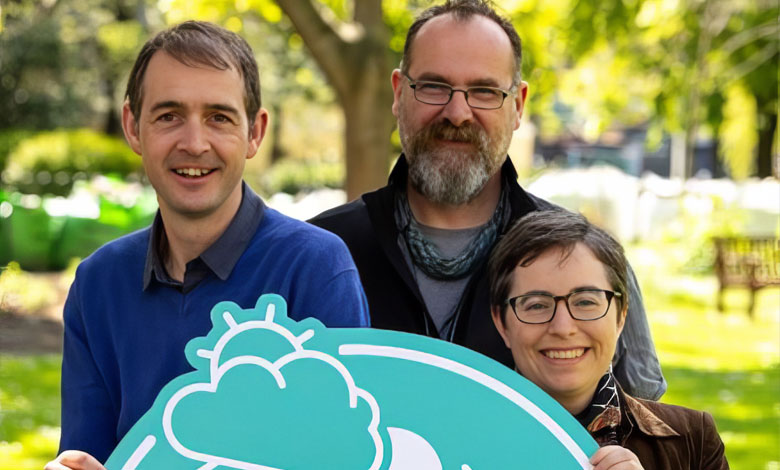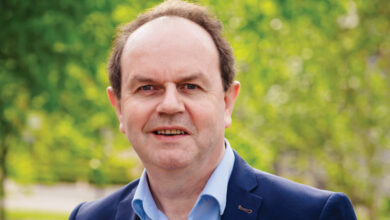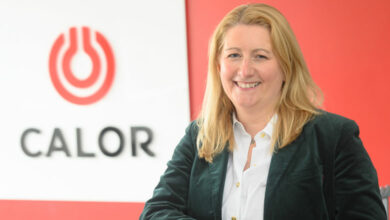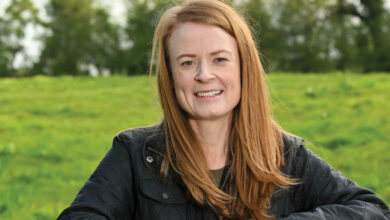First steps on our pathway to a renewable future

Northern Ireland is well positioned to leverage its resources and geography to deliver green and sustainable growth, writes David Rooney, Professor of Chemical Engineering at Queen’s University Belfast, and academic director of CASE.
It has been almost a year since the Department for the Economy and the Centre for Advanced Sustainable Energy held the first Northern Ireland Energy Summit.
Ten recommendations, to set us on a pathway for a renewable future, were contained within the accompanying White Paper. These spanned a broad range of areas including governance, finance, technology, and cooperation. Since then, the Northern Ireland Executive reformed, and a new economic vision was announced. This focused on increasing prosperity, balancing the economy, good jobs, and delivering all of this against the legal and moral obligations of net zero.
Central to the opportunity within the document was the intersection of renewables, agri-tech, and manufacturing. Together, these presented a nexus of immense potential for the UK’s agriculturally rich regions, in particular, Northern Ireland. While this nexus is not unique, Northern Ireland’s commitment to net zero emissions and its established agricultural, manufacturing, digital, and fintech sectors create an ideal environment for innovation.
To realise its potential, an investment in whole systems thinking is needed, to leverage Northern Ireland’s resources and its existing skill base. Analysis suggests that success will transform the regional economy into one which can thrive in the years ahead, providing future generations with secure jobs whilst protecting the environment too. Importantly, it can do this in a way which recognises and balances factors common across the UK and Ireland, with those unique to Northern Ireland.
The critical mass to deliver success is evident from the significant existing and planned investments across complementary areas. In November 2023, Science Foundation Ireland, DAERA and UKRI announced £60 million of funding to develop two collaborative all-islands co-centres focusing on climate change and sustainable and resilient food systems.
These co-centres build on the research excellence within the Institute for Global Food Security at Queen’s University Belfast (QUB). Specific research will seek to develop just transition pathways, disruptive business models and agronomic practices that can restore biodiversity and diversify land use, while increasing value chains and sustaining rural livelihoods. None of this will be easy, but the research investment is timely and it can be leveraged.
Access to significant quantities of clean energy will be critical. Marine resources cannot be overlooked, and CASE funded innovations have enabled QUB and partners to advance wave energy converter arrays, to optimise commercial tidal turbines, and to develop novel underwater sensors which mitigate the risk of collision with marine fauna. These are all enabled through Northern Ireland’s geography, encompassing Portaferry and the Strangford Narrows.
Maximising the efficacy of existing technologies is also important. One of the most mature is anaerobic digestion (AD) which should be considered as a tool. Like all tools it will deliver a solution if it is used correctly, or it will lead to greater problems if it is misused. Viewing AD as a tool, allows it to deliver much more than biomethane to service the heating, power and transport sectors. Instead, it can be considered as supporting three different services to the regional economy and environment, namely energy, nutrient and carbon.
Energy services are obvious, given that biomethane is a direct drop-in replacement for natural gas. CASE research has already demonstrated that substantial resources exist and, in November 2023, the first direct-to-grid injection on the island of Ireland, occurred within the Evolve network. More connections are needed and, recently, the gas network operators jointly launched a collaborative request for information, to inform longer-term network planning.
Nutrient services are a direct consequence of the processing capabilities which support the concentration of nutrients into the digestate streams. To date, this has not been the primary focus, but it has become more important due to the ongoing environmental problems which were on show worldwide, because of Lough Neagh’s disastrous algal blooms.
AD can mitigate these issues when deployed in combination with improved land management and the use of multispecies swards. The economics and potential regulation of AD will be significantly easier for larger plants. Balancing smaller on-farm units with larger regionally centralised processing akin to agricultural cooperatives or community owned energy enterprises is important, and more work is needed to incentivise inward investment and adoption. The recent announcements by DfE, DAERA, and the Shared Island Fund are welcome, as they aim to support clean energy, control nutrients and to develop new transformative bioeconomies. Work in this area needs to be accelerated.

Carbon services recognise that biogenic carbon has an increasing value. AD can supply carbon in multiple forms including CO2 for the agritech sector and future e-fuel markets which strongly complements green hydrogen. CASE work has identified specific niche areas in the marine and aviation industries, where Northern Ireland could significantly contribute. Similarly, the carbon embodied in the digestate, can be converted and valorised to a range of products, including organic rich fertilisers or biochar to support the wider construction sector and its supply chain.
Inherent in all of this are the wider opportunities that arise from building capability in the measuring, validating, reporting and trading of energy, nutrients and carbon. Barriers to delivering net zero across the UK often arise from a poor evidence base. Good work in this area will quantify embodied carbon, as well as inform and communicate the interconnected business, financial, legal, political and regulatory decisions and frameworks needed for the transition. Tools which offer high levels of transparency and accountability for the carbon embodied in products and services, will inform and accelerate decisions within business.
A global net zero future needs a CarbonTech sector to support decisions and to provide a blend of carbon, nutrient and energy services to industries and their supply chains. This nascent sector has echoes of Northern Ireland’s globally recognised FinTech capabilities that draw on an existing blend of talent, innovation and expertise. Northern Ireland could lead the way.
Since the summit, significant successes have been achieved and new opportunities have emerged. The central tenet remains – positioned correctly, Northern Ireland can leverage regional resources, in partnership with those in the UK and Ireland, amplifying the value of renewable and biogenic resources to deliver green and sustainable growth.
Let’s not miss the opportunity.






